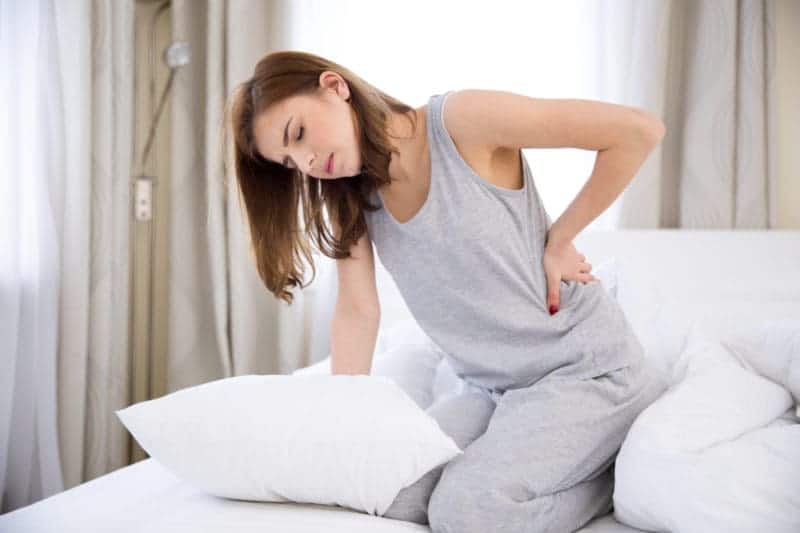Dealing with pain can certainly be a pain! There are many treatment factors to consider. The most important factor being to find the actual reason for pain, and work on treating those root causes, so pain not only improves in the short-term, but further pain is also prevented from occurring in the future. Here are the top 12 elements I use to address pain naturally and effectively in my Functional Medicine practice:
- Sleep
- Get enough good quality sleep. There is an association between sleep problems and musculoskeletal pain. Click here for article on sleep hygiene.
- Hydration
- Make sure you drink at least half your body weight in ounces of water daily. More if you are active and/or it is hot outside. Under hydration increases pain perception.
- Nutrition
- Decrease processed and packaged foods, ditch sugar, and add more plant foods in the diet. If you want to get serious about figuring out if food is a contributor, do a 30-day elimination diet. I commonly prescribe a 30-day Paleo reset for my pain patients, which accomplishes an elimination diet as well. Click here to learn how to get started with healthier eating.
- Movement
- Getting your 10,000 steps per day in, standing more/sitting less is a great place to start. Adding in more movement is key. I find Yoga and Pilates particularly helpful for my pain patients. Exercise helps modulate pain intensity. To learn 5 ways to move more click here.
- Relaxation
- A daily relaxation practice, particularly meditation, has been proven to significantly reduce pain by changing pain signaling. Other techniques like deep breathing, prayer, hypnotherapy, Epsom salt baths with lavender oil, and float tanks also work well.
- Detoxify
- Decrease your environmental toxin exposure, including those that come from your personal and household products. Click here to learn more about detoxification.
- Improve Digestion and Elimination
- When abdominal gas, bloating, or heartburn is occurring, digestion is likely impaired. Two common causes of this are not enough stomach acid, and not enough digestive enzymes (bile acids also play a role). Make sure you have a daily bowel movement. If you are not, you are impairing one of your main detox pathways. Also, constipation is a significant contributor to abdominal pain. Diarrhea can also contribute to nutrient deficiencies, which in turn may be a factor in causing pain. Click here for information on optimal bowel habits.
- IR sauna Use
- Many studies show that regular IR sauna use decreases pain. You also get the win-win of helping detoxify as well. Click here for more information.
- Acupuncture
- Acupuncture with electrostimulation can be particularly helpful in reducing pain. Typically the sooner you get started with acupuncture; the easier and faster it will be to reduce your pain. Click here for more information on conditions acupuncture can treat.
- Body Work
- The human touch is very healing! There are several effective outlets for body work: Massage Therapy, Cupping, Stretch Therapy, Rolfing, Reiki, Physical Therapy, and Chiropractic care just to name a few modalities that have been shown to reduce pain.
- Magnesium
- Adding magnesium is a great way to help relax muscles, and treat sore muscles. There are several studies on the use of magnesium malate for these purposes. Click here for an in depth article on magnesium.
- Test to find out the root cause of your pain
- Work with a functional medicine practitioner to find and treat the root causes of your pain. Advanced laboratory testing may help reveal other contributing factors to your pain, such as nutrient deficiencies, hidden chronic infections, toxin exposure, and much more. Learn more about Functional Medicine here.
References
- https://www.ncbi.nlm.nih.gov/pubmed/24290442
- https://www.ncbi.nlm.nih.gov/pubmed/25299477
- https://www.ncbi.nlm.nih.gov/pubmed/26785699
- https://www.ncbi.nlm.nih.gov/pubmed/26084281
- https://www.ncbi.nlm.nih.gov/pubmed/25566158
- https://www.ncbi.nlm.nih.gov/pubmed/18685882
- https://www.ncbi.nlm.nih.gov/pubmed/24322588
- https://www.ncbi.nlm.nih.gov/pubmed/23738680
- https://www.ncbi.nlm.nih.gov/pubmed/24867893









